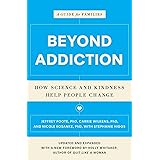It starts with a simple declaration. “This is it. No more.” Perhaps you felt strong and determined. The first day passes, then maybe the second. A sense of pride begins to grow. Yet, for many, the familiar pattern emerges. A few days later, a cigarette is lit. That feeling of guilt quickly follows. You might even think, “I am weak. My self-control is simply not enough.” This internal struggle is common.
The video above sheds light on this very real dilemma. It suggests the problem is not a lack of willpower. Instead, something far more complex is at play. Understanding this distinction can be a significant step. It shifts the blame from you to the true culprit: nicotine itself. This insight offers a pathway to a different approach. We are often caught in a trap created by nicotine in the brain.
Why Willpower Fails Against Nicotine’s Grip
Willpower is a valuable human trait. It helps us achieve many goals. However, it often falls short when battling nicotine addiction. This is not a personal failing. It is a testament to nicotine’s powerful effects. Nicotine dependency is a deep-seated biological process. Willpower, by contrast, is a conscious effort. The brain is literally rewired by consistent nicotine use. It’s like a small dam holding back a powerful river.
Nicotine Rewires the Brain’s Reward System
When tobacco is used, nicotine swiftly reaches the brain. There, it triggers a release of dopamine. Dopamine is a crucial neurotransmitter. It signals pleasure and reward. The brain interprets this as a positive experience. It then learns to associate certain situations with nicotine. Relaxing, reducing stress, enjoying coffee – these become linked. This learning forms strong neural pathways. The brain begins to demand nicotine for these situations.
The brain’s reward system is effectively reprogrammed. It is trained to seek nicotine. This happens over time. The pleasure response becomes tied to the substance. The cycle of reinforcement is powerful. It creates a deep-seated dependency. This is far beyond simple habit. It becomes a physiological imperative.
The Onset of Withdrawal Symptoms
Attempts to quit smoking bring an abrupt stop to nicotine intake. Dopamine levels in the brain quickly drop. This sudden decrease triggers withdrawal symptoms. These are not merely psychological. They are a physical reaction. Irritability often increases. Stress levels can feel unmanageable. Sleep patterns may be disturbed. Feelings of anxiety become common. The body and mind feel a strong sense of deprivation. They crave the missing chemical. The brain simply demands its “fix.” It signals that just one more cigarette will bring normalcy back.
These changes manifest daily. Waking up often brings the first craving. A cup of coffee can automatically trigger an urge. Stressful situations frequently lead to thoughts of smoking. These are not signs of weakness. They are the brain’s conditioned responses. The brain seeks the familiar dopamine rush. It has been trained over many years. Unlearning this conditioning is key.
Conditioning: How Triggers Become Automatic
Nicotine does more than release dopamine. It subtly programs brain circuits. Over time, automatic cravings are generated. These happen whenever a trigger appears. An alarm clock, for instance, might signal “cigarette time.” The smell of coffee can ignite an immediate urge. A stressful email often leads to a nicotine demand. The brain believes nicotine is necessary to cope. These automatic signals are repeated endlessly. They become incredibly strong neural connections. This process is known as conditioning.
The brain effectively pairs situations with nicotine. These links are subconscious. They bypass rational thought. This makes quitting incredibly challenging. Willpower alone cannot easily break these deep-rooted patterns. The urge feels almost instinctual. It’s like an involuntary reflex. Recognizing these triggers is an essential first step. It allows for different responses.
The Deceptive Cycle of Nicotine Relief
Nicotine has immediate physiological effects. It quickly elevates heart rate. Blood pressure also rises. After some time, these levels begin to drop. This decline often brings increased anxiety. Irritability may also grow. Smokers might then reach for another cigarette. They believe it helps them calm down. They think it reduces their stress. However, this is a dangerous illusion. Nicotine itself often created the initial tension. The next cigarette only offers temporary relief. It doesn’t solve the underlying problem. It perpetuates the cycle.
This entire process is a cleverly designed trap. Nicotine first amplifies stress. Then, it provides a fleeting moment of calm. The smoker perceives the cigarette as the solution. In reality, nicotine is the root cause. This cycle must be understood. It must be broken for successful cessation. Willpower alone cannot dismantle this sophisticated conditioning. The brain’s ingrained learned behavior must be addressed. Only then can true freedom from nicotine be found.











